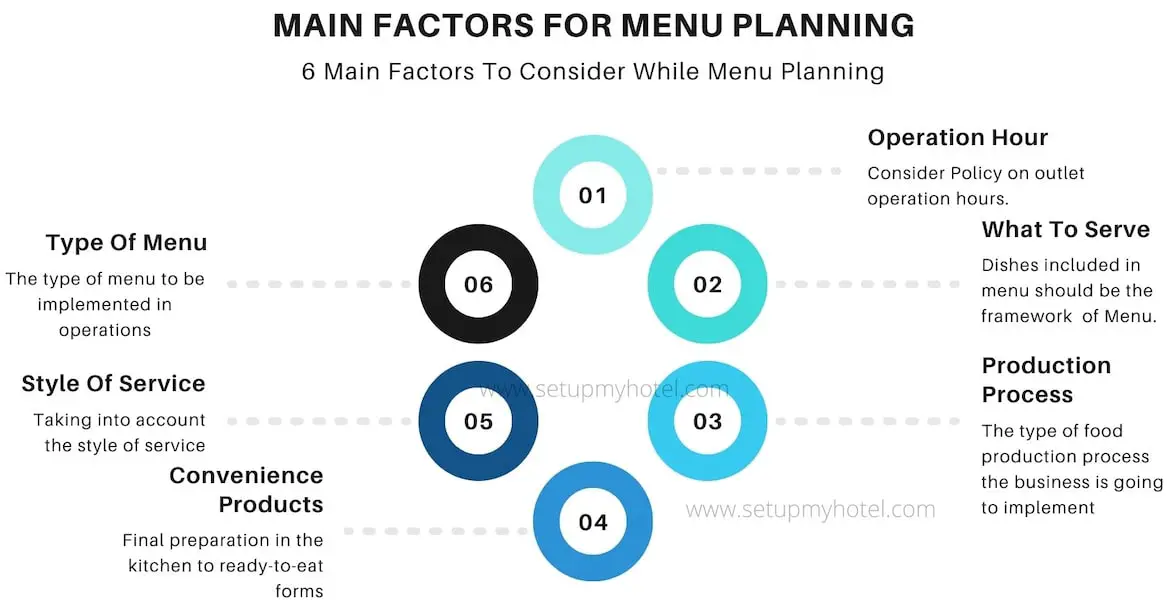27 Duties And Responsibility Of Pastry Chef / Head Baker
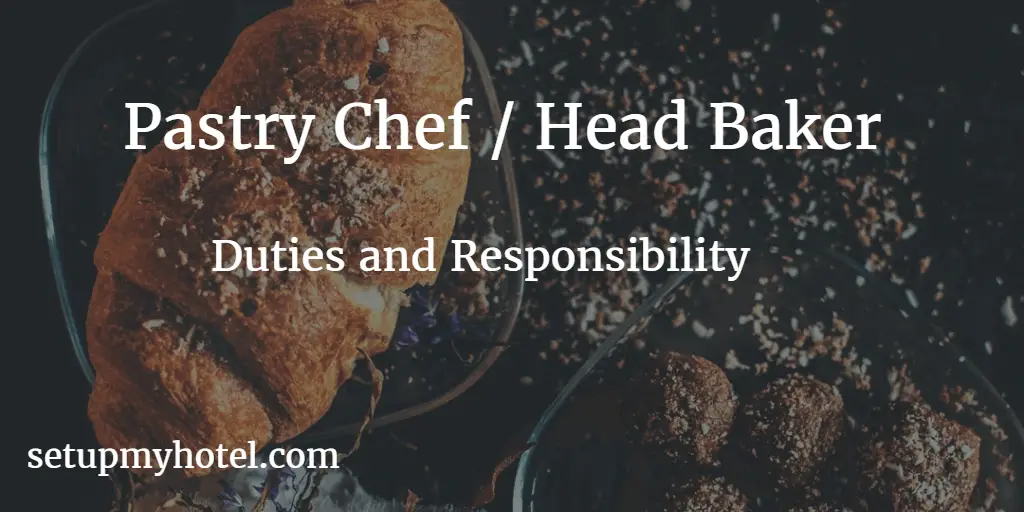
Job Description, Duties, Interview Questions and Salary for Pastry Chef A pastry chef is a professional in the culinary arts ...
Read more
Commis III Job Description

Job Description, Duties, Interview Questions and Salary For Commis III As a Commis III, you will be an important member ...
Read more
Commis I Job Description / Range Chef Job Description
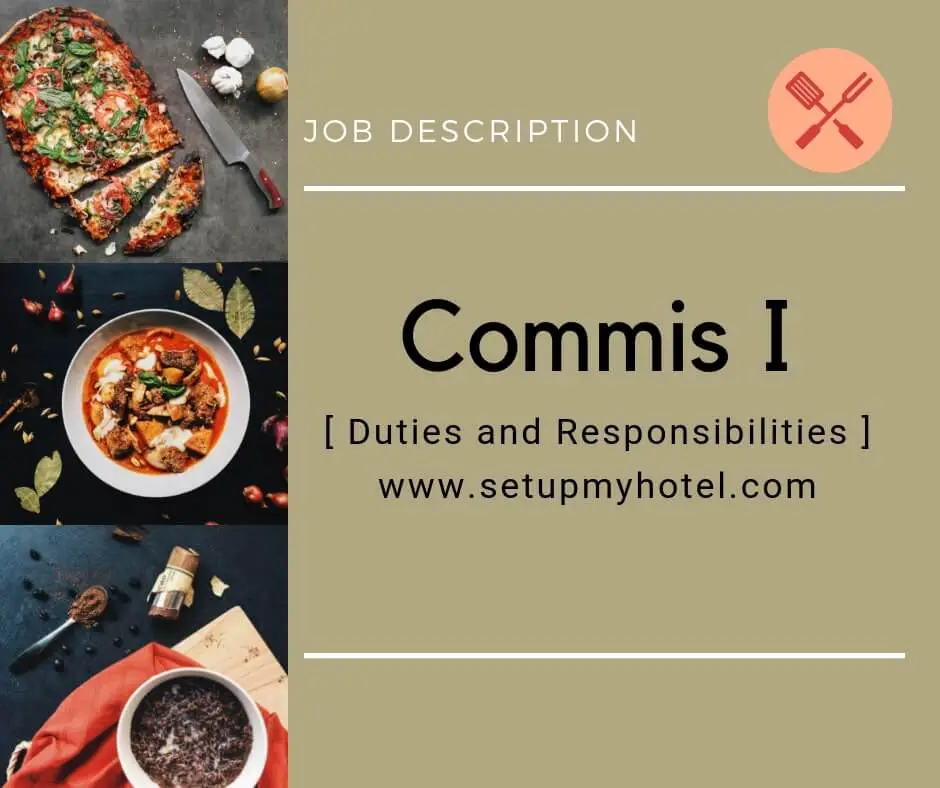
Job Description, Duties, Interview Questions and Salary For Commis I As a Commis I, you will be responsible for assisting ...
Read more
39 Duties And Responsibility Of Banquet Chef | Catering Chef
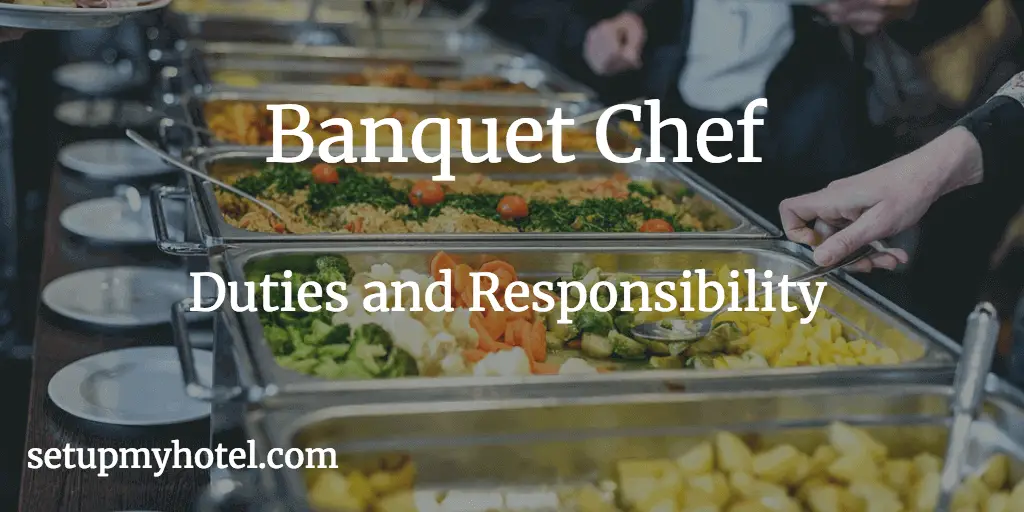
Job Description, Duties, Interview Questions and Salary for Banquet Chef As a Banquet Chef, you will be responsible for overseeing ...
Read more
37 Duties And Responsibility For Executive Chef
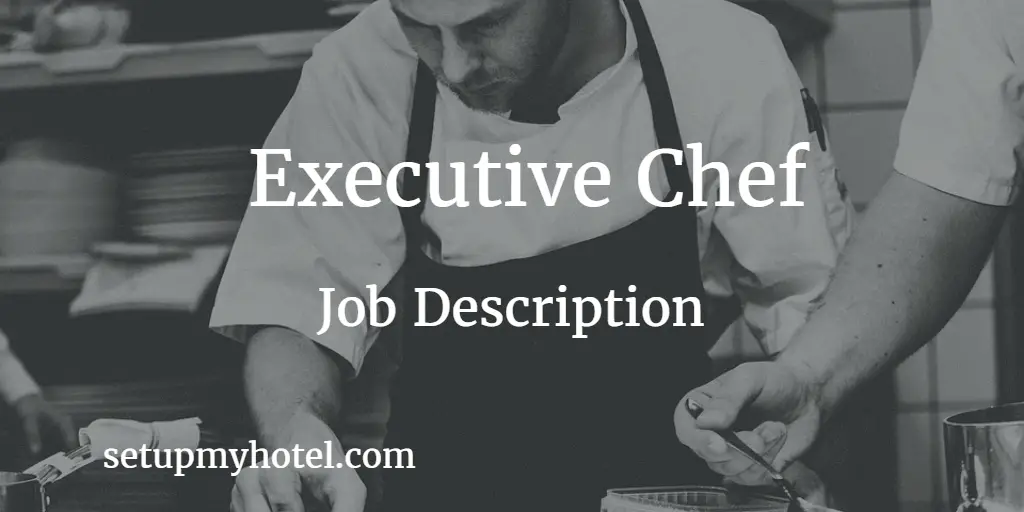
Job Description, Duties, Interview Questions and Salary for Executive Chef Position An executive chef is a highly skilled culinary professional ...
Read more
7 Tips And Tricks For Food Plate & Platter Arrangement – Hotels | Restaurants
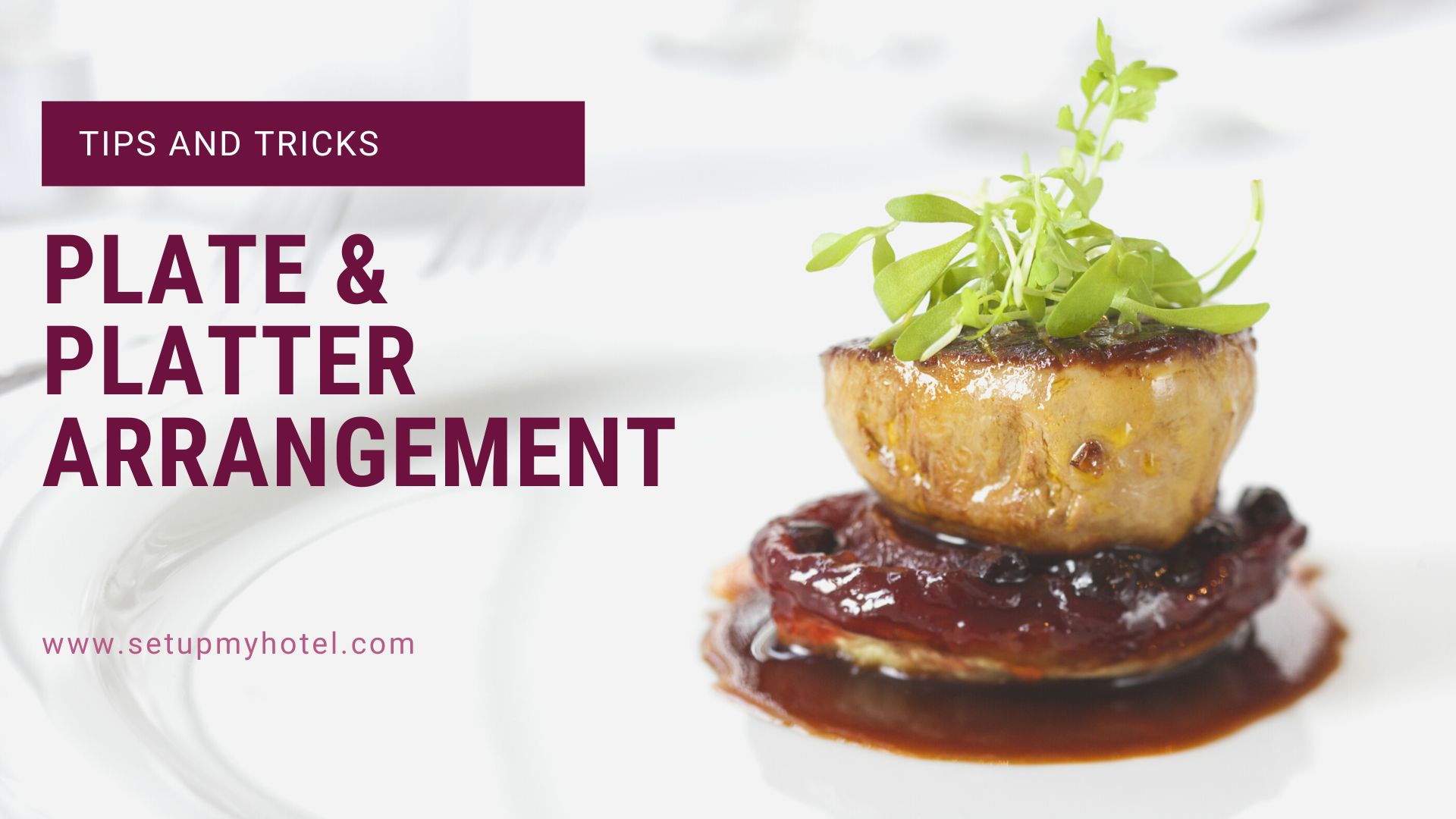
Plate & Platter Arrangement Tips and Tricks For Chef’s 1. Keep food away from the plate’s rim. The meal is supposed ...
Read more
Uses Of Medium Duty Equipment In The Hotel Kitchen
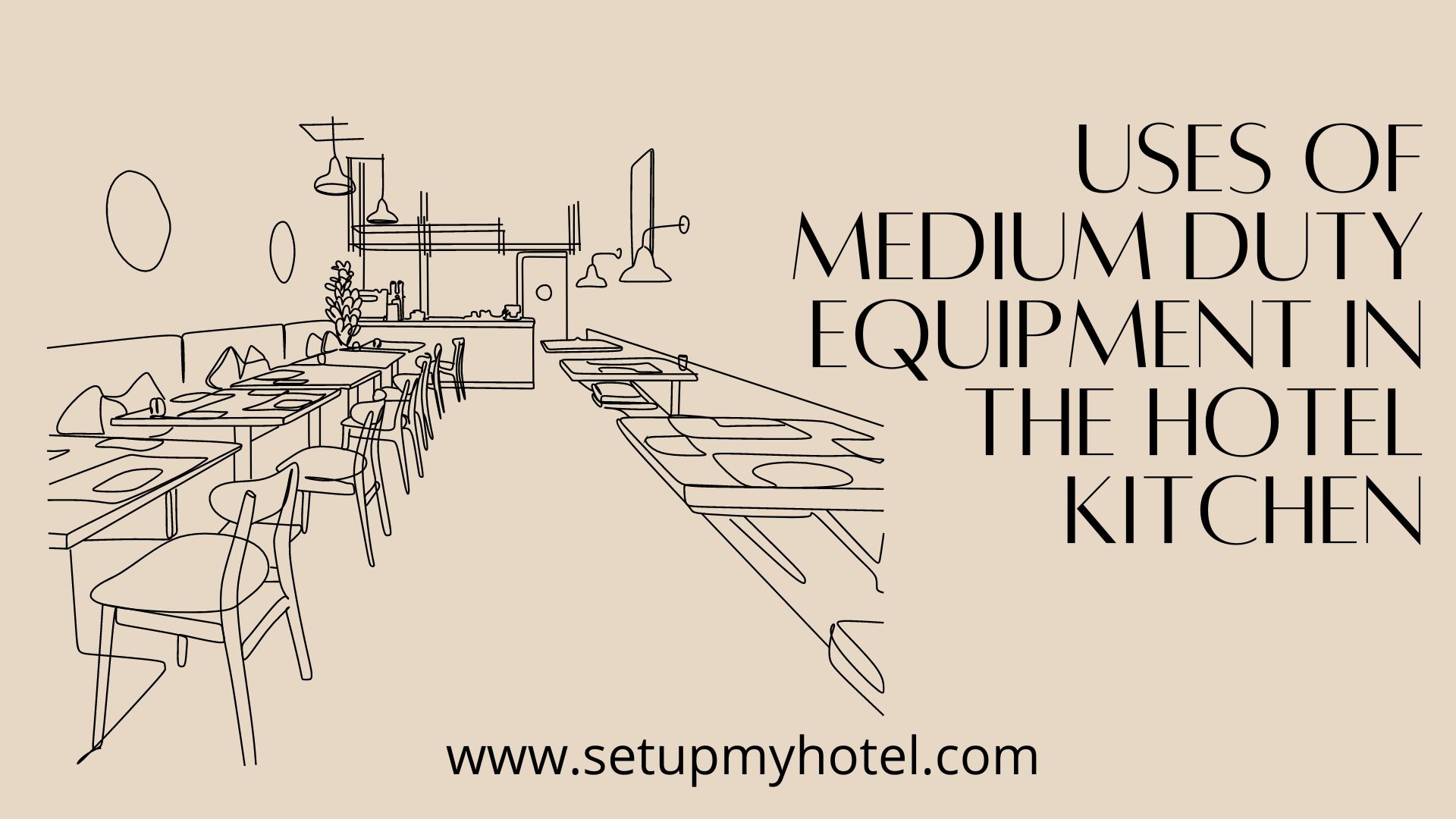
Uses Of Medium Duty Equipment In The Hotel Kitchen Medium-duty equipment is a necessary piece of hotel kitchen infrastructure. It ...
Read more
Kitchen Organization Chart / F&B Production Organization Chart

Kitchen Organisation Chart / F&B Production Organization Chart The organisation chart of F&B Production department should provide a clear picture of the lines ...
Read more
39 Hygiene Rules And Regulations For Kitchen Staff / Chefs
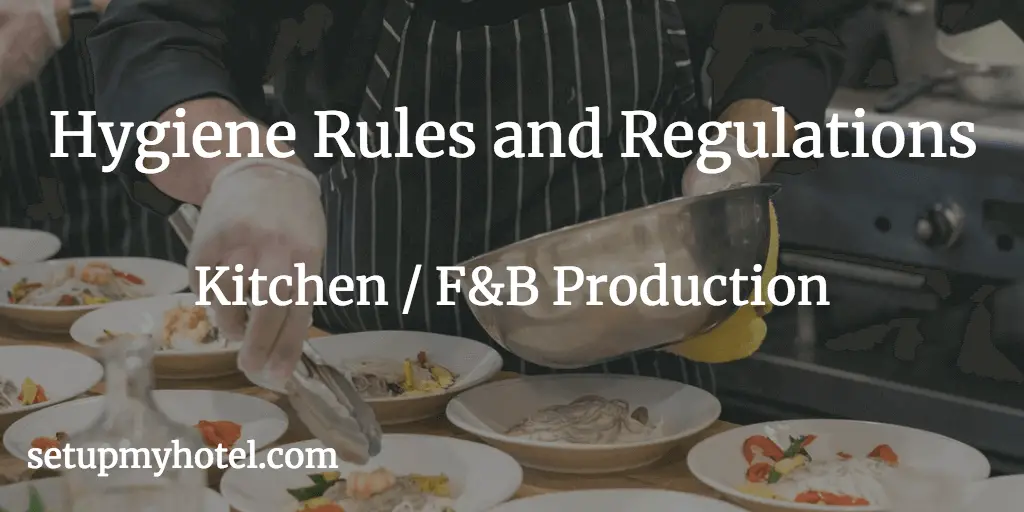
Hygiene Rules for Hotel Kitchen and Food Production Staff Maintaining proper hygiene in a kitchen is essential for the safety ...
Read more
